
Recommendation
In 2016, several US federal agencies called their remote workers back into the office, claiming a lack of evidence proving the effectiveness of remote work. The result – at least according to some data: an uptick in the frequency of sick leave and vacation requests, no increases in productivity and plummeting employee morale. In fact, Gallup data reinforces the circumstantial evidence collected by the federal agencies. Employers weighing the pros and cons of letting their employees work from home will be interested in learning about Gallup’s findings.
Summary
About the Authors
Adam Hickman is content manager at Gallup where Jennifer Robison is a senior editor.
Learners who read this summary also read
Article










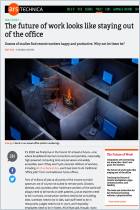
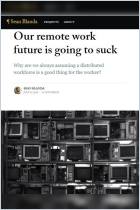
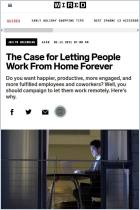
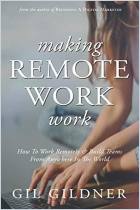
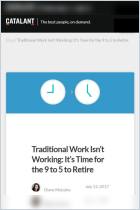







Comment on this summary or 开始讨论